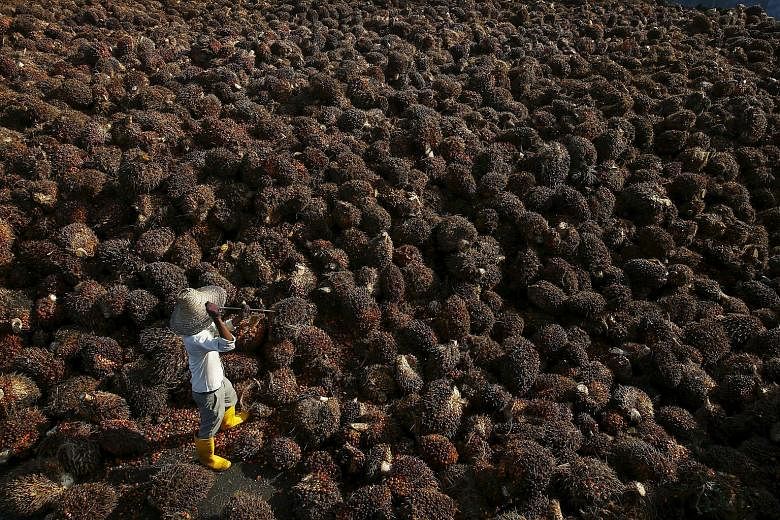KUALA LUMPUR (REUTERS) - Malaysia raised its tax on crude palm oil (CPO) exports to 5 per cent for April, a government circular showed on Tuesday (March 15), ending a duty-free policy held since May 2015.
The higher tax could dent exports from the world's No.2 palm oil producer after Indonesia and drag benchmark Malaysian prices of the tropical oil, which hit one-month highs this week amid output worries due to a crop-damaging El Nino weather event.
"Big plantations will be rushing to take out CPO from the country. That should put some pressure on domestic figures and supplies and take exports higher before the tax kicks in," said a trader based in Kuala Lumpur.
After that exports are expected to come down, the trader added. "Producers will be most affected, big players who have been exporting a lot of CPO will be at a disadvantage."
A CPO export tax is, however, good news for local refiners as it will help keep more crude palm oil at home, weighing on domestic prices and improving downstream margins. There are no duties on Malaysian exports of refined palm oil products.
"This ... will change the export percentage between CPO and processed palm oil products," said Alan Lim, a plantations analyst at MIDF Research. "We do expect some reduction in CPO exports but this will be compensated. If we compare this against Indonesia's US$50 a tonne levy on CPO, Malaysia is still more competitive."
The reference price for Malaysia's export duty is set based on a formula taking the average of spot palm prices for a period of 30 days prior to when the tax is set.
Malaysia calculated a reference price of RM2,500.34 (US$607.17) per tonne for April. A price above RM2,250 incurs a tax, which starts from 4.5 per cent and can reach a maximum 8.5 per cent.
Palm oil futures are now at RM2,594, near a one-month top of RM2,632 hit on Monday. Last week at an industry meet, experts said they see benchmark prices trading between RM2,700-3,000 by June as dryness linked to El Nino hurts output growth.
But an ongoing slump in export demand, which is expected to worsen once the Malaysian tax kicks in, should help offset the impact of lower output, traders said.
"Exports will not look good, there has been no demand for months. Everyone is waiting for India to buy," said another trader from Kuala Lumpur. "Ramadan demand will come in April, but they will buy palm olein."

